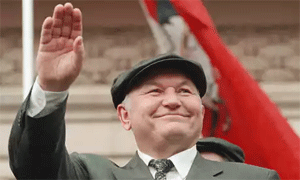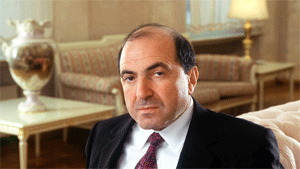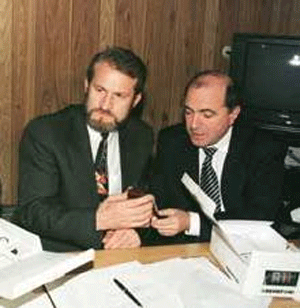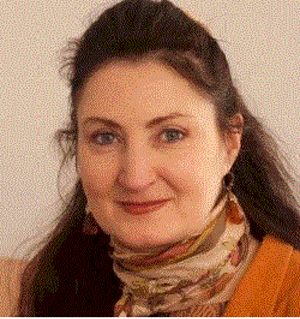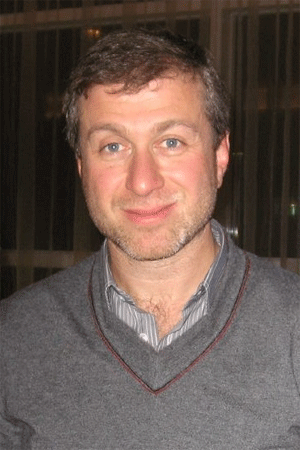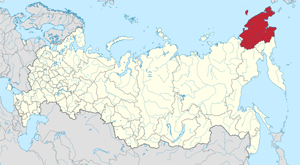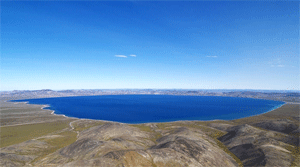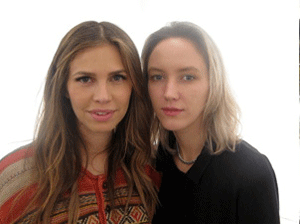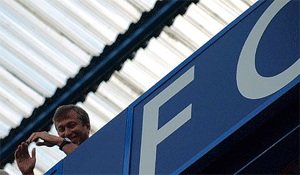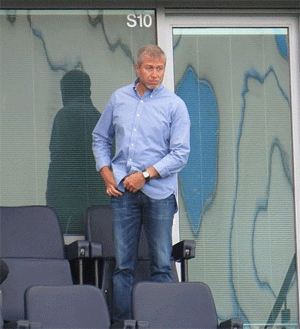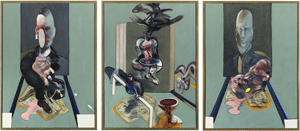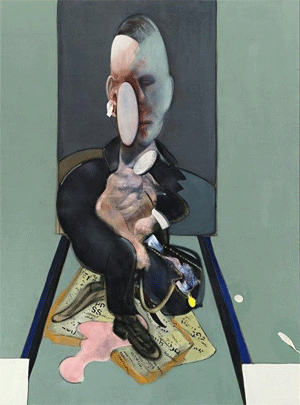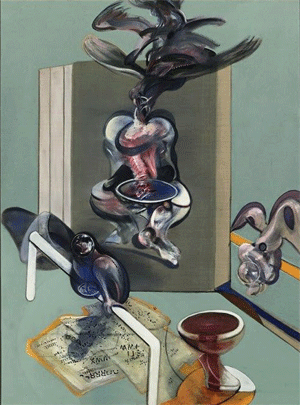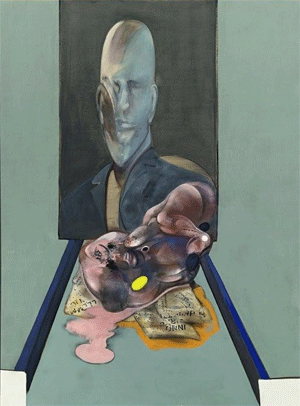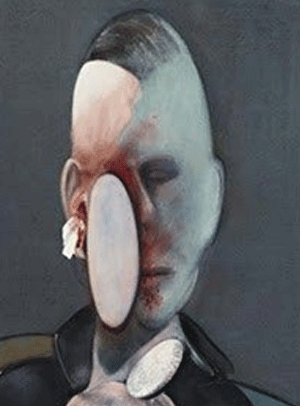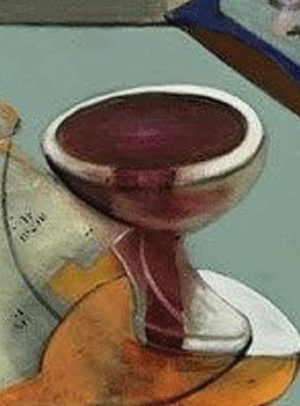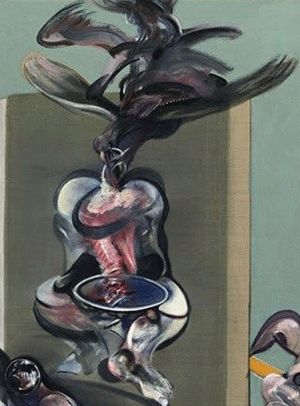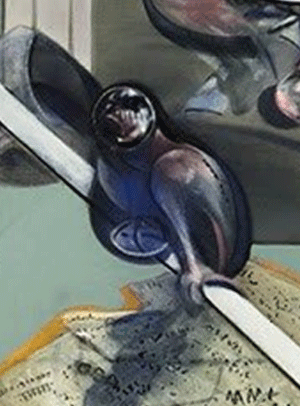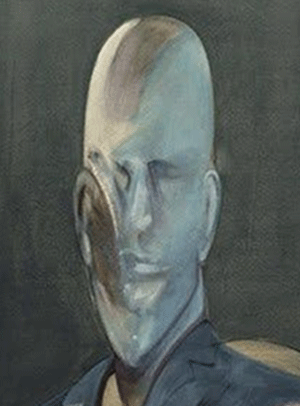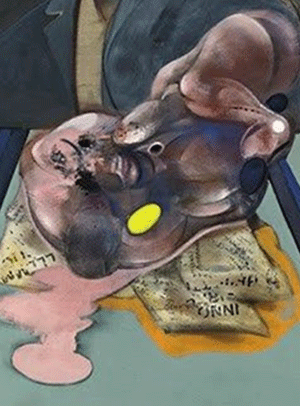Part 2 of 2
CSKA MoscowIn March 2004, Sibneft agreed to a three-year sponsorship deal worth €41.3 million (US$58 million) with the Russian team CSKA Moscow. Although the company explained that the decision was made at management level, some viewed the deal as an attempt by Abramovich to counter accusations of being "unpatriotic" which were made at the time of the Chelsea purchase. UEFA rules prevent one person owning more than one team participating in UEFA competitions, so Abramovich has no equity interest in CSKA. A lawyer, Alexandre Garese, is one of his partners in CSKA.
Following an investigation, Abramovich was cleared by UEFA of having a conflict of interest.[81] Nevertheless, he was named "most influential person in Russian football" in the Russian magazine Pro Sport at the end of June 2004.
In May 2005, CSKA won the UEFA Cup, becoming the first Russian club ever to win a major European football competition. In October 2005, however, Abramovich sold his interest in Sibneft and the company's new owner Gazprom, which sponsors Zenit Saint Petersburg, cancelled the sponsorship deal.[82]
Russian national team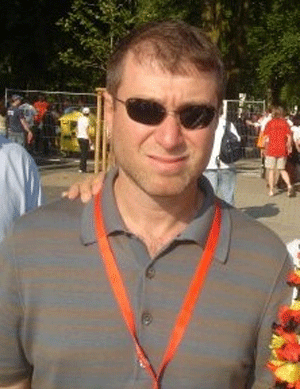 Abramovich at the 2006 FIFA World Cup in Germany
Abramovich at the 2006 FIFA World Cup in GermanyAbramovich also played a large role in bringing Guus Hiddink to Russia to coach the Russia national football team.[83] Piet de Visser, a former head scout of Hiddink's club PSV Eindhoven and now a personal assistant to Abramovich at Chelsea, recommended Hiddink to the Chelsea owner.[84]
National Academy of FootballIn addition to his involvement in professional football,
Abramovich sponsors a foundation in Russia called the National Academy of Football. The organization sponsors youth sports programs throughout the country and has constructed more than fifty football pitches in various cities and towns. It also funds training programs for coaches, prints instruction materials, renovates sports facilities and takes top coaches and students on trips to visit professional football clubs in England, the Netherlands and Spain. In 2006 the Academy of Football took over the administration of the Konoplyov football academy at Primorsky, near Togliatti, Samara Oblast, where over 1,000 youths are in residence, following the death at 38 of its founder, Yuri Konoplev.[85]
WealthAccording to Forbes, as of March 2016, Abramovich had a net worth of US$7.6 billion, ranking him as the 151th richest person in the world.[86] In March 2017, Bloomberg estimated his wealth as US$10.4 billion.[87] Prior to the 2008 financial crisis, he was considered to be the second richest person living within the United Kingdom.[88] Early in 2009, The Times estimated that due to the global economic crisis he had lost £3 billion from his £11.7 billion wealth.[89]Wealth rankingsYear The Sunday Times
Rich List Forbes
The World's Billionaires
Rank Net worth (GB£) Rank Net worth (US$)
2010[90][91] 2 Steady ₤7.40 billion Increase $11.2 billion Increase
2011[92][91] 3 Decrease ₤10.30 billion Increase 53 Increase $13.4 billion Increase
2012[93][94] 3 Steady ₤9.50 billion Decrease 68 Decrease $12.1 billion Decrease
2013[95][96] 5 Decrease ₤9.30 billion Decrease 107 Decrease $10.3 billion Decrease
2014[97] 9 Decrease ₤8.42 billion Decrease 137 Decrease
2015[98][99] 10 Decrease ₤7.29 billion Decrease 137 Steady $9.10 billion Decrease
2016[100][86] 13 Decrease ₤6.40 billion Decrease 151 Decrease $7.60 billion Decrease
Legend
Icon Description
Steady Has not changed from the previous year
Increase Has increased from the previous year
Decrease Has decreased from the previous year
Charitable donationsAbramovich reportedly donated more money to charity than any other living Russian.[4] Between 2009 and 2013, Abramovich donated more than US$2.5 billion to build schools, hospitals and infrastructure in Chukotka. In addition, Evraz Plc (EVR), the steelmaker partly owned by Abramovich, donated US$164 million for social projects between 2010 through 2012, an amount that is excluded in Abramovich’s US$310 million donations during this period.[4]
Abramovich has reportedly spent approximately GB£1.5 bn on the Pole of Hope, his charity set up to help those in the Arctic region of Chukotka, where he was governor.[101]
Other interests and activities
Art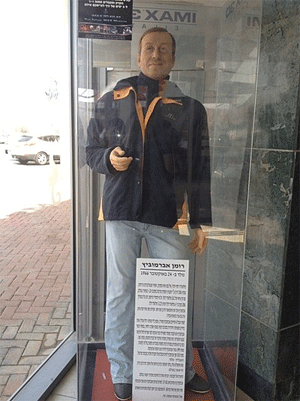 Statue of Roman Abramovich in a mall in Eilat, Israel.
Statue of Roman Abramovich in a mall in Eilat, Israel.Roman Abramovich sponsored an exhibition of photographs of Uzbekistan by renowned Soviet photographer Max Penson (1893–1959) which opened on 29 November 2006 at the Gilbert Collection at Somerset House in London. He previously funded the exhibition "Quiet Resistance: Russian Pictorial Photography 1900s–1930s" at the same gallery in 2005.[102] Both exhibits were organized by the Moscow House of Photography.[103]
In May 2008, Abramovich emerged as a major buyer in the international art auction market.
He purchased Francis Bacon's Triptych 1976 for €61.4 million (US$86.3 million) (a record price for a post-war work of art) ...
and Lucian Freud's Benefits Supervisor Sleeping for €23.9 million (US$33.6 million) (a record price for a work by a living artist).[104]His partner Dasha Zhukova is managing a Garage Center for Contemporary Culture - gallery of contemporary art in Moscow that was initially housed in the historical Bakhmetevsky Bus Garage building by Konstantin Melnikov. The building, neglected for decades and partially taken apart by previous tenants, was restored in 2007–2008 and reopened to the public in September 2008. Speed and expense of restoration is credited to sponsorship by Abramovich.[105]
YachtsAbramovich has become the world's greatest spender on luxury yachts, and always maintains a fleet of yachts which the media have called "Abramovich's Navy":[106]
Current boats:• Eclipse 162.5 metres (533 ft) – Built in Germany by Blohm + Voss, she was launched in September 2009.[107]Abramovich was due to take delivery of the yacht in December 2009,[108] but was delayed for almost a year after extensive sea trials. The yacht's interior and exterior were designed by Terence Disdale. Eclipse is believed to have cost Abramovich around US$400 million, and was, when delivered, the world's largest privately owned yacht, having been eclipsed in 2013 by the 180 metres (590 ft) Azzam. The specification includes at least two swimming pools, a cinema, two helicopter landing-pads, several on-board tenders and a submarine that can be launched and dive to a depth of 160 ft. She is also equipped with armour plating surrounding the bridge and Abramovich’s master suite, as well as bullet proof windows.[109]
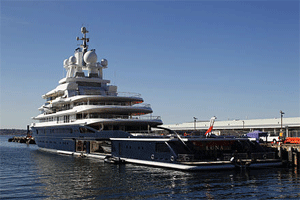 The world's second largest expedition yacht, Luna, seen docked in San Diego, January 2013. Sold to Farkhad Akhmedov in April 2014 for $360m USD.
The world's second largest expedition yacht, Luna, seen docked in San Diego, January 2013. Sold to Farkhad Akhmedov in April 2014 for $360m USD.• Titan:Measures 262ft in length and he has owned it since 2010.
Former boats:
• Pelorus 115 metres (377 ft) – Built in 2003 by Lurssen for Sheikh Abdul Mohsen Abdulmalik Al-Sheikh, owner of M/Y Coral Island (renamed Coral Ocean) and M/Y Sussurro, who received six offers to sell her before she was even completed. In 2004 the Sheikh accepted the highest bid, which was Abramovich's. The interior was designed by Terence Disdale. The exterior was designed by Tim Heywood. Pelorus was refitted by Blohm + Voss in 2005 adding a new forward helipad and zero speed stabilizers. Given to Irina in 2009 as part of the divorce settlement, she was approached on David Geffen's behalf by broker Merle Wood, with Geffen paying US$300 million to take ownership in 2011.[110]
• Sussurro 49.5 metres (162 ft) – Built by Feadship in 1998 for Sheikh Abdul Mohsen Abdulmalik Al-Sheikh.
• Ecstasea 85 metres (279 ft) – Largest Feadship built at launch in 2004 and delivered to Abramovich. She has a gas turbine alongside the conventional diesels which gives her high cruising speed. Abramovich sold the boat to the Al Nayhan family in 2009.[111]
• Le Grand Bleu 112 metres (367 ft) – Formerly owned by John McCaw, Abramovich bought the expedition yacht in 2002 and had her completely refitted by Blohm + Voss, including a 16 ft (4.9 m) swim platform and sports dock. He presented her as a gift to his associate and friend Eugene Shvidler in June 2006.
• Luna 115 metres (377 ft) – Built by Lloyd Werft and delivered to Roman Abramovich in 2009 as an upgraded replacement for his Le Grand Bleu expedition yacht.[112] Sold to close friend, Azerbaijani born self-made billionaire Farkhad Akhmedov in April 2014 for $360m USD. Boasts a 1 million litre fuel tank, 7 engines outputting 15,000 hp propelling Luna to a maximum speed of 25 knots, 8 tenders, 15 cm ice-class steel hull and 10 VIP Cabins.
Aircraft 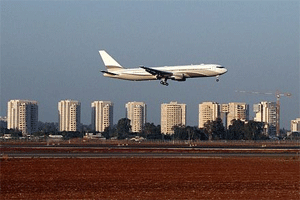 Roman Abramovich's Boeing 767, The Bandit, landing at Ben Gurion Airport, Israel
Roman Abramovich's Boeing 767, The Bandit, landing at Ben Gurion Airport, IsraelHe owns a private Boeing 767-33A/ER, registered in Aruba as P4-MES. It is known as The Bandit[113] due to its livery. Originally the aircraft was ordered by Hawaiian Airlines but the order was cancelled and Abramovich bought it from Boeing and refitted it to his own requirements by Andrew Winch, who designed the interior and exterior. The aircraft was estimated in 2016 to cost US$74 million and its interior is reported to include a 30-seat dining room, a boardroom, master bedrooms, luxury bathrooms with showers, and a spacious living room. The aircraft has the same air missile avoidance system as the Air Force One.[113] Abramovich also owns a Gulfstream 650 with registration LX-GVI and a Dassault Falcon 7X with registration LX-MES named as "Mini Bandit".
New Year's Eve celebrationsIn 2009, Abramovich had Beyoncé, Gwen Stefani and Prince sing at his New Year’s Eve event at his estate on the Caribbean island of St Bart's.[114] In 2011, Abramovich hired the Red Hot Chili Peppers to perform for a reported £5m.[115] The performance by Red Hot Chili Peppers included a special appearance from Toots Hibbert of Toots and the Maytals.[115] Abramovich reportedly spent £5 million on a total of 300 guests,[115] including George Lucas, Martha Stewart, Marc Jacobs and Jimmy Buffett.[116] In 2014, Abramovich hired British singer Robbie Williams to headline a New Year's dinner for President Putin's "inner circle". The party took place in Moscow and appears to have been the inspiration for Williams' song "Party Like a Russian".[117][118]
Israeli citizenshipAs of May 2018, USSR-born billionaire businessman Abramovich is finalizing the paperwork to grant him Israeli citizenship. He is eligible to do so on account of his Jewish heritage.[119]
Abramovich owns the Varsano boutique hotel in Tel Aviv's Neve Tzedek neighborhood, which he bought for 100 million NIS in 2015 and is converting it into his Israeli home. He bought the hotel from Gal Gadot's husband Yaron Varsano and Varsano's brother Guy.[120]
Abramovich has also invested in more than a dozen Israeli startups including rapid-battery charger technology developer Storedot.[120] In 2018, he donated 70 million NIS for the Sheba Hospital in Tel HaShomer, for nuclear medicine research.[121]
See also• List of Russian billionaires
• Russian oligarchs
• List of Jews born in the Russian Empire and the Soviet Union
References1. "Roman Abramovich". forbes.com. Retrieved 2018-03-22.
2. "Chelsea owner Roman Abramovich splits from wife". BBC News. 7 August 2017.
3. "Roman Abramovich immigrates to Israel". Globes. May 28, 2018. Retrieved May 28, 2018.
4. Meter, Henry; Sazonov, Alex (24 April 2013). "Most Charitable Russian Abramovich Leads Billionaires". Bloomberg News.
5. "Roman Abramovich: the orphan who came in from the cold". The Daily Telegraph. October 31, 2011. Retrieved June 25, 2018.
6. "Beneath the cold 'death mask' of Abramovich". The Straits Times. December 14, 2015. Retrieved June 25, 2018.
7. Dunst, Charles (June 21, 2018). "Billionaire Roman Abramovich helps brings ill Israeli kids to the World Cup". Jewish Telegraphic Agency. Retrieved June 25, 2018.
8. Геноцид жителей Литвы 1939—1941. — Вильнюс: Центр исследования геноцида и резистенции жителей Литвы, 1999. — С. 78—79.
9. Родовое гнездо Абрамовича нашлось в Литве // — Радио Свобода, 2010
10. Litvak SIG (Lithuanian Jewish Special Interest Group Database -
https://www.litvaksig.org/) Lithuania Marriage and Divorces, Record from Taurage Raseinai Kaunas, August 20th 1925, LVIA/1817/1/322
11. Неизвестные страницы жизни Романа Абрамовича КП — Саратов
12. Еврейский музей и центр толерантности объявил о создании эндаумент-фонда Музея Archived 10 March 2014 at the Wayback Machine.
http://www.jewish-museum.ru13. Goldman, M. (2 June 2003). The Piratization of Russia: Russian Reform Goes Awry. Routledge. p. 132.
14. Vandysheva, Olga (3 July 2008). "Roman Abramovich is no longer Chukotka's governor". Komsomolskaya Pravda. spb.kp.ru. Retrieved 9 December 2016.
15. Pendlebury, Richard (15 October 2006). "Will Irina Abramovich bring about Roman's fall?". The Daily Mail. United Kingdom.
16. "Abbandonata dal marito, Galina Berezovskij si consola con 227 milioni di euro". Il Giornal (in Italian). 24 July 2011. Irina Vyacheslavovna Malandina, ex-hostess dell'Aeroflot nonché madre dei suoi 5 figli,
17. Miami Newsday: "Chelsea owner Roman Abramovich celebrates birth of his seventh child, his second with model Daria Zhukova" Archived 16 September 2013 at the Wayback Machine. 14 April 2013
18. Kennedy, Dominic; Stewart, Will. Abramovich is 'deeply hurt' by claims his wife wants a divorce, The Times, 17 October 2006. Retrieved 23 April 2010.
19. Mikhailova, Anna. Meeting Dasha Zhukova, Roman Abramovich's girl, The Times, 13 July 2008. Retrieved 23 April 2010.
20. Harding, Luke (16 March 2007). "Goodnight Irina: Abramovich settles for mere £155m". Vedomosti reported in The Guardian. London: Guardian News and Media Ltd. Retrieved 16 March 2007.
21. Foster, Olivia (30 January 2015). "From lovers to secret SIX-YEAR marriage: How magazine editor Dasha Zhukova's beauty and brains tamed bad boy businessman Roman Abramovich". The Daily Mail. United Kingdom. Retrieved 12 March 2017.
22. "Chelsea owner Roman Abramovich splits from wife". BBC News. BBC. Archived from the original on 7 August 2017. Retrieved 7 August 2017.
23. "Roman Abramovich built multi-billion-dollar career during his army service". Pravda. Archived from the original on 15 February 2011. Retrieved 3 December 2010.
24. "Abramovich quits as Governor". Archived from the original on 1 March 2009. Retrieved 2009-03-01.. RT (3 July 2008).
25. Roman Abramovich – Russiapedia Politics and society Prominent Russians. RT.
26. Asthana, Anushka. "Roman Abramovich". The Times. London. Retrieved 22 May 2010.
27. FRONTLINE/WORLD . Moscow – Rich in Russia . How to Make a Billion Dollars – Roman Abramovich. PBS. Retrieved 3 December 2010.
28. "The Biography of the Great Oil Tycoon Roman Abramovich". Archived from the original on 10 February 2011. Retrieved 2011-02-10.. Leadership Biographies (12 February 2010).
29. The great Roman empire – Analysis, Opinion. Independent.ie (1 October 2005). Retrieved 3 December 2010.
30. Weyer, Martin Vander. The winner of Russia's free-for-all, The Telegraph (UK), 31 October 2004. Retrieved 23 April 2010.
31. Midgley, Dominic; Hutchins, Chris (3 May 2005). Abramovich: The Billionaire from Nowhere. Harper Collins Willow. ISBN 978-0-00-718984-7.
32. "Chelsea owner admits he paid out billions in bribes". The Independent. Ireland. 5 July 2008. Retrieved 3 December2010.
33. "Хостинг-Центр". The Guardian (in Russian). Russia. Archived from the original on 17 May 2009. Retrieved 3 December 2010.
34. Levy, Adrian; Scott-Clark, Cathy (8 May 2004). "He won, Russia lost". Retrieved 23 April 2010.
35. Strauss, Julius. Shy orphan who rose to join Russia's super-rich, The Daily Telegraph, 6 November 2003. Retrieved 23 April 2010.
36. "He Was the Penniless Orphan". Archived from the original on 20 December 2010. Retrieved 2010-12-20.. bmi Voyager (28 October 2008). Retrieved 3 December 2010.
37. Wolosky, Lee S. (March–April 2000). "Putin's Plutocrat Problem". Foreign Affairs. 79 (2): 21.
38. "On the Ball". Archived from the original on 10 July 2011. Retrieved 2011-07-10.. The Jewish Chronicle (15 October 2004).
39. Kennedy, Dominic. Roman Abramovich admits paying out billions on political favours, The Times, 5 July 2008. Retrieved 23 April 2010.
40. OAO Siberian Oil Company (Sibneft) – Company History. Fundinguniverse.com. Retrieved 3 December 2010.
41. Russia, Economy, Putin, Oligarchs, Loans for Shares – JRL 9–30–05 Archived 6 August 2009 at the Wayback Machine.. Cdi.org (29 September 2005). Retrieved 3 December 2010.
42. Russia, Oil, Gazprom, Sibneft – JRL 9–29–05 Archived 6 August 2009 at the Wayback Machine.. Cdi.org (29 September 2005). Retrieved 3 December 2010.
43. To survive the aluminium wars, mettle was needed – Times Online Archived 25 April 2012 at the Wayback Machine.. The Times. 5 July 2008.
44. Fricker, Martin (5 November 2011). "Roman Abramovich revealed: The dangerous world of Roman and Russia's oligarchs". The Daily Mail. United Kingdom.
45. Abramovich leads $30m round in OD Kobo's music start-up. Globes.co.il. Retrieved 20 April 2015.
46. Music Messenger, the App That Nicki Minaj and David Guetta Invested In, Is Exploding -- Here's Why. billboard.com. Retrieved 22 April 2015.
47.
https://www.reuters.com/article/us-musi ... BI2015042148. "מסוללות לרכב חשמלי ועד לקסדה שתשקם משותקים: מפת ההשקעות של רומן אברמוביץ'". כלכליסט -
http://www.calcalist.co.il. 2018-05-30. Retrieved 2018-05-30.
49. Neuman, Nadav (12 June 2014). "Roman Abramovich invests $10m in StoreDot". Globes. Retrieved 9 August 2018.
50. Sakwa, Richard (2011). The Crisis of Russian Democracy: The Dual State, Factionalism and the Medvedev Succession. Cambridge University Press.
51. "Inside the hidden world of Roman's empire". The Guardian. United Kingdom. 24 December 2006.
52. "Roman Abramovich 'could not pull strings' with Putin". BBC News. 19 September 2012.
53. Smale, Will (29 September 2005). "What Abramovich may do with his money". BBC News. Retrieved 22 May 2010.
54. "RussiaToday: Features: Birth rate boost in Abramovich's region". Archived from the original on 18 March 2008. Retrieved 2008-03-18.. RT (17 March 2008).
55. "Abramovich quits as Governor". Archived from the original on 18 July 2008. Retrieved 2008-07-18.. RT (3 July 2008).
56. "Russia's Putin Awards Order of Honor to Abramovich". Retrieved 30 August 2016.[dead link]. MosNews.com (20 January 2006). Retrieved 19 October 2006.
57. Walker, Shaun (4 July 2008). "Abramovich quits job in Siberia to spend more time on Western front". The Independent. London. Retrieved 4 July 2008.
58. Kennedy, Dominic (5 July 2008). To survive the aluminium wars, mettle was needed, The Times. Retrieved 23 April 2010.
59. Berezovsky v Abramovich Action 2007 Folio 942
60. "Court win 'vindicates' Abramovich". Press Association. 31 August 2012. Archived from the original on 1 September 2012. Retrieved 31 August 2012.
61. "Roman Abramovich Wins Court Battle Against Berezovsky". BBC. 31 August 2012. Retrieved 31 August 2012.
62. Medetsky, Anatoly. Russian energy company seeking damages from Abramovich, Moscow Times, 19 November 2007. Retrieved 29 September 2008.
63. Russia-InfoCentre :: Roman Abramovich Russian tycoon :: people. Russia-ic.com. Retrieved 3 December 2010.
64. Kennedy, Dominic. Chelsea boss linked to $4.8bn loan scandal, The Times, 16 August 2004. Retrieved 23 April 2010.
65. Sweeney, John; Behar, Richard (16 January 2005). "Bank to sue Abramovich over '£9m debt'". BBC News. Retrieved 22 May 2010.
66. Hope, Christopher (19 January 2005). "European bank sues Abramovich over £9.4m 'debt'". The Daily Telegraph. London. Retrieved 22 May 2010.
67. Santarris, Ben (10 September 2008). "Evraz Accused of Breaking Russian Antitrust Laws". The Oregonian. Retrieved 19 March 2013.
68. Press conference on the situation in Ukraine
69. "Chelsea to build new training complex". Worldsoccer.com. 27 September 2004. Retrieved 3 July 2007.
70. Scott, Matt (28 November 2006). "Rummenigge hits out over Chelsea's massive spending". The Guardan. London. Retrieved 28 November 2006.
71. "Roman Abramovich Calm About Chelsea's Record Losses". MosNews. 30 January 2006. Archived from the original on 23 March 2006. Retrieved 19 January 2007.
72. "We will cut spending — Abramovich". BBC. 24 December 2006. Retrieved 19 January 2007.
73. Lowe, Sid (13 April 2007). "Instability at Chelsea could force me to leave, says Mourinho". The Guardian. London. Retrieved 13 April 2007.
74. "Mourinho makes shock Chelsea Exit". BBC Sport. 20 September 2007. Archived from the original on 18 January 2010. Retrieved 20 September 2007.
75. "Chelsea name Grant as new manager". BBC Sport. 20 September 2007. Archived from the original on 17 January 2010. Retrieved 20 September 2007.
76. "Mourinho issues warning to Grant". BBC Sport. 12 July 2007. Retrieved 20 September 2007.
77. "Grant sacked as Chelsea manager". BBC Sport. 24 May 2008. Archived from the original on 17 January 2010. Retrieved 24 May 2008.
78. "Roberto Di Matteo named as permanent Chelsea manager". BBC. 13 June 2012. Retrieved 22 November 2012.
79. JOSE MOURINHO – FIRST TEAM MANAGER Archived 9 June 2013 at the Wayback Machine.. Chelsea F.C.
80. "Love is all around at Stamford Bridge as Roman and Jose are friends reunited". Daily Mail. 18 August 2013. Retrieved 19 August 2013.
81. "Abramovich's Soccer Interests Cleared by Uefa". Archived from the original on 11 November 2006. Retrieved 30 August 2016., mosnews.com (2 September 2004). Retrieved 19 October 2006.
82. Sibneft ends CSKA Moscow sponsorship deal – ESPN FC. ESPN.COM (28 November 2005). Retrieved 9 December 2016.
83. Australia & PSV Coach Guus Hiddink Recommended To Russia Football Union By Chelsea Owner Roman Abramovich, Who Will Pay Wages. Worldcuplatest.com. Archived 10 September 2006 at the Wayback Machine.
84. Dutch scout is Abramovich's secret link. The Daily Telegraph. 9 June 2005.
85. Wilson, Jonathan (2 January 2008). "Russia reaps rewards of visionary school". The Guardian. UK. Retrieved 19 January 2008.
86. "The World's Billionaires 2016". Forbes. 2016. Retrieved 12 March 2017.
87. "Richest Businessmen: Roman Abramovich Net Worth". TheRichest. March 2017. Retrieved 12 March 2017.
88. "Sunday Times Rich List 2008". The Sunday Times. 2008.
89. Haynes, Deborah (18 January 2009). "Abramovich wants to sell Chelsea". The Sunday Times. United Kingdom. Retrieved 18 January 2009. Philip Beresford, who compiles The Sunday Times Rich List, conservatively estimates that Abramovich has lost £3 billion from his £11.7 billion fortune.[dead link]
90. "Roman Abramovich's fortune increases by £400m in a year, as Rich List reveals remarkable recovery of the super-wealthy". The Daily Mail. United Kingdom. 25 April 2010. Retrieved 12 March 2017.
91. "The World's Billionaires 2011". Forbes. 2011. Retrieved 12 March 2017.
92. Lipman, Jennifer (9 May 2011). "Chelsea's Abramovich scores on Rich List". The Jewish Chronicle. United Kingdom. Retrieved 12 March 2017.
93. Sawer, Patrick (24 April 2012). "Sunday Times Rich List 2012: Wealth of richest grows to record levels". The Telegraph. United Kingdom. Retrieved 12 March 2017.
94. Walker, Tim (21 March 2012). "Rupert Murdoch makes Roman Abramovich 'an offer' to buy his newspaper titles". The Telegraph. United Kingdom. Retrieved 12 March 2017.
95. "The Sunday Times Rich List, 2013 (annotated)". Genius. Genius Media Group Inc. 2013. Retrieved 12 March 2017.
96. Hickman, Martin (4 March 2013). "2013 Forbes Billionaires list: Record number of new entries appear on rich list, but Carlos Slim and Bill Gates still top the charts". The Independent. United Kingdom. Retrieved 12 March 2017.
97. "'Rich List' counts more than 100 UK billionaires". BBC News. United Kingdom. 11 May 2014. Retrieved 12 March2017.
98. "Here is the list of Britain's 25 richest people". The Independent. United Kingdom. Press Association. 26 April 2015. Retrieved 12 March 2017.
99. Blankfeld, Keren (23 March 2015). "Rags To Richest 2015: Billionaires Despite the Odds". Forbes. Retrieved 12 March 2017.
100. Brinded, Lianna (24 April 2016). "These are the top 25 richest people in Britain". Business Insider. United Kingdom. Retrieved 12 March 2017.
101. Lock, Georgina (5 October 2005). "The charitable side of ... Roman Abramovich". Third Sector.co.uk. Retrieved 17 December 2015.
102. "Roman Abramovich funds London exhibition". Archived from the original on 11 February 2007. Retrieved 2007-02-11.. The Art Newspaper. 27 November 2006.
103. Roman Abramovich and Dasha Zhukova Art Collection. artmagazine.nicholaschistiakov.com
104. "Roman Abramovich brings home the $86.3m Bacon and the $33.6m Freud". The Art Newspaper (1 June 2008)
105. Osipovich, Alexander (16 September 2008). "Abramovich's girlfriend opens major Moscow art gallery". Agence France-Presse. Archived from the original on 30 September 2013. Retrieved 21 September 2008.
106. "Admiral Chelski wins sea supremacy" The Sunday Times 17 January 2007
107. Sorrel, Charlie (21 September 2009). "Russian Billionaire Installs Anti-Photo Shield on Giant Yacht". Wired. Retrieved 21 September 2009.
108. Pancevski, Bojan. Roman Abramovich zaps snappers with laser shield, The Times, 20 September 2009. Retrieved 23 April 2010.
109. Stenning, Paul (31 October 2010). Waste of Money: Overspending in Football. Pitch Publishing. ISBN 978-1905411931.
110. Stern, Jared Paul (14 July 2011). "David Geffen's New $300 Million Yacht Gets Upstaged By A Russian Businessman's Boat In Mallorca". businessinsider.com. Archived from the original on 7 January 2012. Retrieved 2 October 2011.
111. Ecstasea video and pictures. Kupoprodaja.com.
112. Motor Yacht Luna 115m Delivered to Roman Abramovich. Superyachts.com (12 April 2010). Retrieved 17 July 2013.
113. "20 Private Jets And The Famous People That Own Them". WorldLifeStyle. 2016. Retrieved 12 March 2017.
114. Thomas, Liz (28 December 2011). "How to party like a billionaire: The stars jet in for Roman Abramovich's £5million annual New Year's Eve bash in St Barts". The Daily Mail. United Kingdom. Retrieved 15 December 2016.
115. Willis, Amy (28 December 2011). "Roman Abramovich hires Red Hot Chili Peppers for exclusive £5m News Year's Eve party". The Telegraph. United Kingdom. Retrieved 15 December 2016.
116. "Toots Hibbert - Biography". Le Parisien. Retrieved 15 December 2016.
117. Tucker, Maxim (28 October 2016). "Email leak reveals Robbie entertained top Putin aide". The Sunday Times.
118. Robinson, Julian (28 October 2016). "Robbie Williams performed for Putin's inner circle, emails reveal". Mail Online.
119.
https://forward.com/fast-forward/401818 ... e-israeli/120.
http://www.globes.co.il/en/article-roma ... 1001237953121.
https://www.thejc.com/news/uk-news/chel ... h-1.459985Bibliography• Midgley, Dominic; Hutchins, Chris (3 May 2005). Abramovich: The Billionaire from Nowhere. Harper Collins Willow. ISBN 978-0-00-718984-7.
• Hoffman, David (4 December 2003). The Oligarchs: Wealth and Power in the New Russia. Public Affairs. ISBN 978-1-58648-202-2.
• Bennetts, Marc (15 May 2008). Football Dynamo – Modern Russia and the People's Game. Virgin Books. ISBN 978-0-7535-1319-4.
• Stenning, Paul (31 October 2010). Waste of Money: Overspending in Football. Pitch Publishing. ISBN 978-1905411931.
External links• Summarized biography – Roman Abramovich: Not Your Everyday Owner
• Pravda: Chelsea's owner Roman Abramovich tops Russia's richest men list
• Forbes: Roman Abramovich
• Roman-Abramovich.com
• BBC Profile: Roman Abramovich (31 August 2012)

